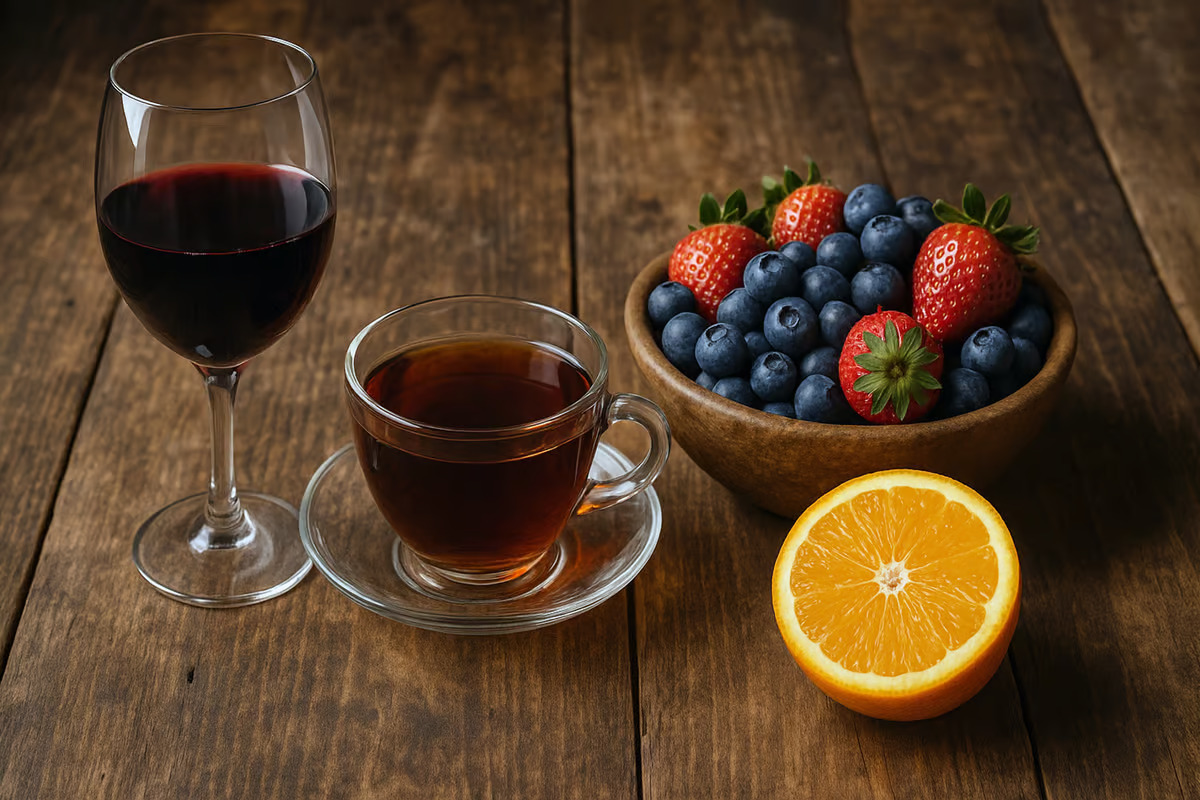 A diet rich in flavonoids promotes healthy aging, a new study has found. DALL-E –
A diet rich in flavonoids promotes healthy aging, a new study has found. DALL-E –
Last year, New Atlas reported on a study led by researchers from Queen’s University Belfast (QUB), in North Ireland, and Edith Cowan University (ECU), in Perth, Australia, that found that a so-called “flavodiet” – a diet high in flavonoids, compounds found in things like berries, apples, and black tea – lowered the risk of developing dementia.
Now, ECU and QUB have teamed up again, this time with US and Danish researchers, to investigate the relationship between consuming a flavonoid-rich diet and indicators of unhealthy aging, such as frailty, reduced physical function and poor mental health.
“The goal of medical research is not just to help people live longer but to ensure they stay healthy for as long as possible,” said Nicola Bondonno, PhD, Adjunct Lecturer at ECU’s School of Medical and Health Sciences and the study’s lead author. “Our research shows that people who consume more flavonoids tend to age better.”
Flavonoids are a group of plant chemicals – phytochemicals – responsible for the vibrant color of many fruits, vegetables and flowers. Research has shown that they have a range of health benefits, including antioxidant, anti-inflammatory and anti-cancer properties. While tea and wine are the primary sources of flavonoids in Eastern and Western societies, many foods are rich in them, including berries, citrus fruits, apples, onions, and cocoa.
For the present study, the researchers used data from two longitudinal studies: the Nurses’ Health Study (NHS), which followed 62,743 female nurses from 1990 (considered baseline) to 2014, and the Health Professionals Follow-up Study (HPFS), which followed 23,687 male health professionals from 2006 (baseline) to 2018. Participants in both studies filled out questionnaires relating to lifestyle and medical history at baseline and every two years thereafter, providing up-to-date lifestyle data and information on any newly developed diseases. Participants were only included in analyses when they reached age 60 or older. Those under 60 at baseline only entered the study once they’d reached this milestone.
They found that in the NHS group, the highest intakes of tea, red wine, blueberries, apples, and oranges or orange juice were associated with 11% to 21% lower risk of developing frailty compared with the lowest intakes. The highest intakes of red wine, blueberries, apples, strawberries, and oranges/orange juice were associated with 4% to 14% lower risk of physical impairment compared with the lowest intakes. Similarly, the highest intakes of apples, strawberries, oranges/orange juice, and grapefruit/grapefruit juice were associated with a 10% to 15% lower risk of poor mental health, compared with the lowest intakes.

In the HPFS group, the highest intakes of tea and blueberries and moderate average intakes of red wine were associated with a 14%, 15%, and 29% reduction, respectively, in the risk of poor mental health. Otherwise, for men, there were no associations between intakes of any of the flavonoid-rich foods and drinks and either frailty or reduced physical function.
“Flavonoids are well known for reducing oxidative stress and inflammation, supporting blood vessel health, and even helping to maintain skeletal muscle mass – all of which are important for preventing frailty and maintaining physical function and mental health as we age,” said the study’s corresponding author, Professor Aedín Cassidy, from QUB’s Institute for Global Food Security. “We found that participants who increased their intake of flavonoid-rich food by three servings a day, had a 6% to 11% lower risk across all three of the aging outcomes in females, and a 15% lower risk of poor mental health in males.”
The researchers say the findings highlight how simple changes to what we eat can benefit our health, particularly … [for the balance of this fascinating and truly important article please visit: https://newatlas.com/health-wellbeing/flavonoid-rich-diet-healthy-aging/]
–
The study was published in The American Journal of Clinical Nutrition.
Source: ECU
–
























